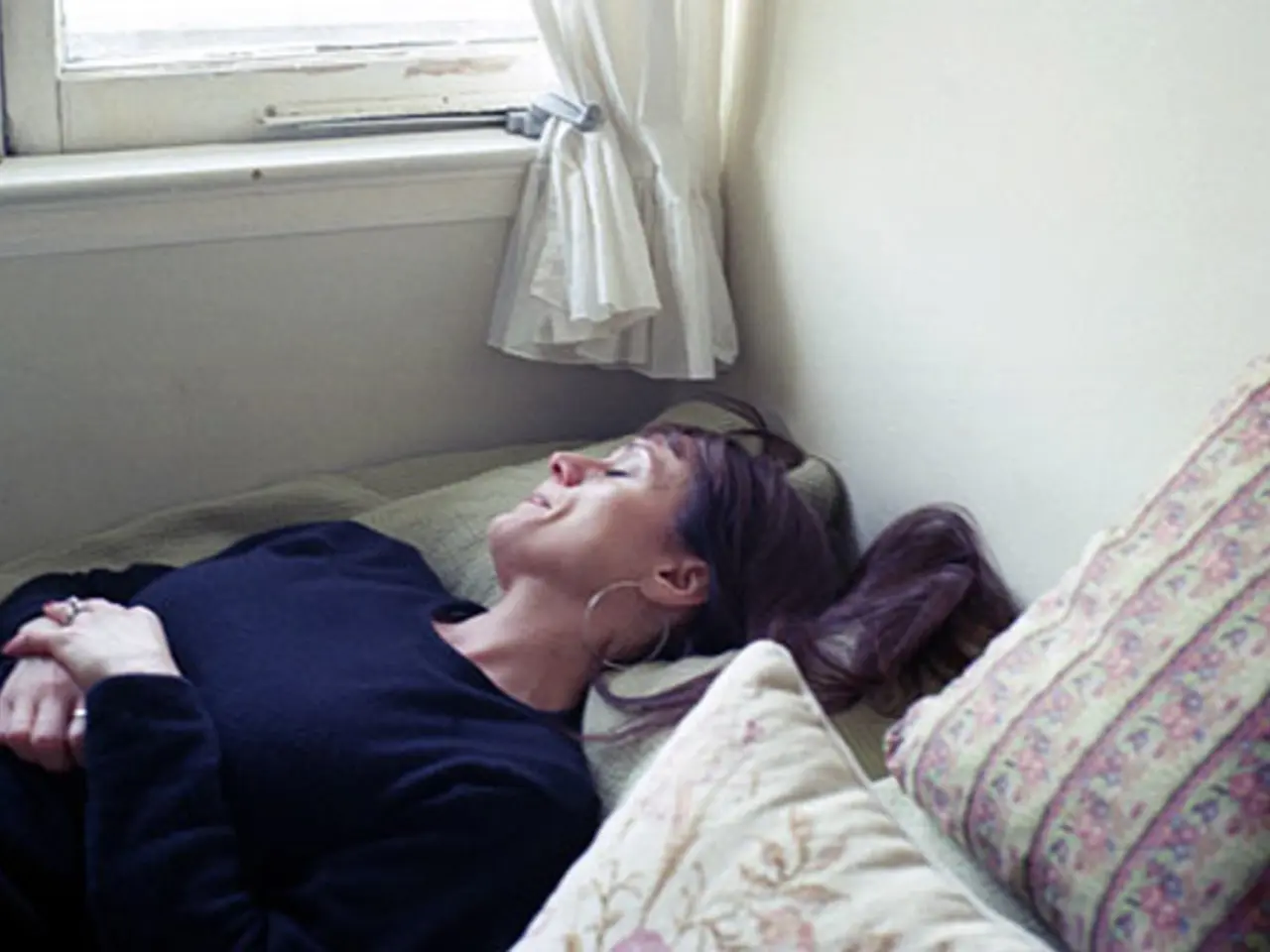Consuming Coffee Extensively Prior to Bedtime Can Impede Sleep Onset: Follow These Steps to Prevent It
In a recent study published in the journal Sleep, researchers investigated the effects of caffeine consumption on sleep quality. The findings suggest that consuming coffee or caffeine too close to bedtime can significantly worsen sleep quality and reduce total sleep duration.
The study found that higher caffeine intake, especially in the late afternoon or evening, is associated with shorter sleep times and poorer subjective sleep quality in adults. For instance, people who reported poor sleep consumed significantly more caffeine (around 192 mg) than those with good sleep (around 125 mg).
The reason behind this lies in the way caffeine affects brain activity during sleep. Caffeine increases electrical complexity, particularly during non-REM sleep and in younger adults, suggesting that it disrupts the brain's normal restorative patterns by promoting a more excitable and dynamic neural state.
Given caffeine's half-life and stimulating effects, researchers and clinicians recommend cutting off caffeine intake 8–10 hours before bedtime. This typically means no caffeine after mid-afternoon (around 2 pm for average sleepers) to avoid sleep impairment.
The ideal daily dose of caffeine, according to experts, is 400 mg, equivalent to around 4 cups of coffee. However, consuming 400 mg of caffeine 4 hours before bed had the most notable impact, decreasing the perception of sleep quality by 34%.
It's important to note that our self-perception of sleep is not always accurate. Objective measurements, such as those performed by polygraphy, show interruptions in deep sleep or higher than normal fragmentation, even when people think they slept well.
If you're experiencing trouble sleeping, frequent waking up, or waking up very tired, it might be worth reviewing your daily caffeine consumption habits. Decaffeinated options or relaxing infusions like chamomile or valerian can be consumed as alternatives to coffee at night.
In conclusion, scientific evidence consistently supports that coffee or caffeine consumption several hours before bedtime negatively impacts sleep quality. To preserve good sleep, it's advisable to avoid consuming coffee after mid-afternoon. This advice aligns with observed neurophysiological changes in the brain caused by caffeine during sleep stages.
- The study on sleep quality published in the journal Sleep reveals that increased caffeine intake, particularly late in the day, can negatively affect psychological states, as it is associated with shorter sleep times and poorer subjective sleep quality.
- In the realm of mental health and health-and-wellness, it's crucial to consider the impact of caffeine consumption on sleep, as researchers have found that consuming caffeine, especially close to bedtime, can disrupt the brain's normal restorative patterns during sleep, resulting in reduced total sleep duration.
- To ensure optimal sleep health, health experts advise limiting caffeine consumption to 400 mg per day, ideally not after mid-afternoon, as caffeine's half-life and stimulating effects can impair sleep quality, leading to feelings of poor sleep, frequent waking, and fatigue upon waking, potentially affecting overall mental well-being.




